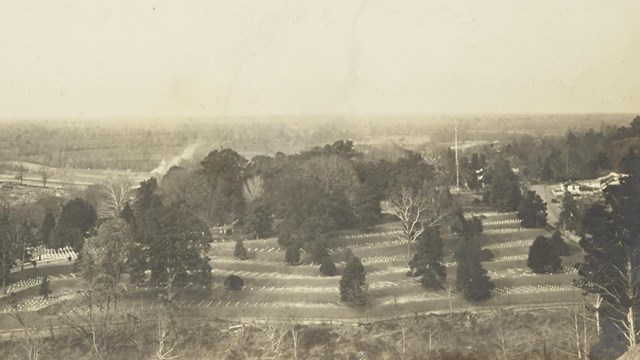A Mississippi Civil War memorial now includes more Black military history
Share
Explore Our Galleries
Breaking News!
Today's news and culture by Black and other reporters in the Black and mainstream media.
Ways to Support ABHM?
By Emily Wagster Pettus, Associated Press

VICKSBURG, Miss. (AP) — Thelma Sims Dukes grew up during the 1940s and ‘50s in a segregated Mississippi town steeped in Civil War history.
As a small Black girl, she would walk to school through Vicksburg National Military Park — the hilly battlefield where Union and Confederate soldiers fought and died over whether the U.S. would continue allowing slavery in the South.
Union forces won a pivotal campaign to capture the town of Vicksburg and gain control of the Mississippi River in 1863, hastening the war’s end. But during Dukes’ childhood, Vicksburg venerated the Confederacy and ignored the history of Black soldiers who fought for the Union, including her great-great grandfather, William “Bill” Sims.
“The superintendents and the museum curators — they said we didn’t fight in the Civil War,” Dukes said recently.
The Black soldiers’ valor and service to the country is no longer ignored, thanks to the efforts of historians, park employees and citizens like Dukes. On crisp morning in mid-February, Dukes and her niece, Sara Sims, and four park employees — two of them Black men wearing reproductions of U.S. Army uniforms from the Civil War — placed American flags on 13 graves where recently identified Black soldiers are buried in Vicksburg National Cemetery, which is part of the military park.
A historian working for the military park, Beth Kruse, identified the soldiers through research of military records, newspapers and other sources. Their remains lie beneath white marble headstones carved with numbers rather than names, as are most veterans buried in the cemetery.
Learn how the National Park Service has changed its approach to history.
The history of Black soldiers who joined Union forces to take Atlanta has recently been revealed.











Comments Are Welcome
Note: We moderate submissions in order to create a space for meaningful dialogue, a space where museum visitors – adults and youth –– can exchange informed, thoughtful, and relevant comments that add value to our exhibits.
Racial slurs, personal attacks, obscenity, profanity, and SHOUTING do not meet the above standard. Such comments are posted in the exhibit Hateful Speech. Commercial promotions, impersonations, and incoherent comments likewise fail to meet our goals, so will not be posted. Submissions longer than 120 words will be shortened.
See our full Comments Policy here.